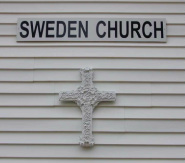The sermon text is from Mark 6:7-13. Jesus has just come back from Nazareth, his hometown. He prepares and sends his disciples off in pairs. Before they depart, he gives them power over unclean spirits (verse 7). His visit to Nazareth was less than cordial (see Luke 4:29). Hence, the motivation to instruct his disciples to take extra steps to protect themselves. (Only stay at one place, take only the clothes and sandals you have on, and carry a staff.)
The disciples are sent out. They preach. They cast out devils. They heal the sick. Now Herod gets wind of this and thinks this might be the works of John the Baptist whom he had beheaded. Surely John has come back from the dead. Why did he behead him? Herod himself believed John to be a just and holy man (verse 20). It’s just that his present wife, Herodias, put her daughter up to having John beheaded because John told Herod it was unlawful for him to be married to his brother’s wife (Herodias).
Three remarkable stories. All centered around repentance. John preached it. Jesus preached it. The disciples preached it. John was beheaded. Jesus was crucified. The disciples all suffered.
But the story of repentance goes on. Christian churches preach it. Missionaries carry the messages to lands near and far. Everyday believers carry it to friends, family, and strangers. Bibles are given away. Leaflets are free just by picking one up that sits on shelves and bulletin boards outside stores.--
The story of repentance, asking God to forgive you of your sins. Wipe your slate clean. Be born again, a new person. The rewards here on earth may be fleeting. But the eternal reward is just that—everlasting and in heaven.
